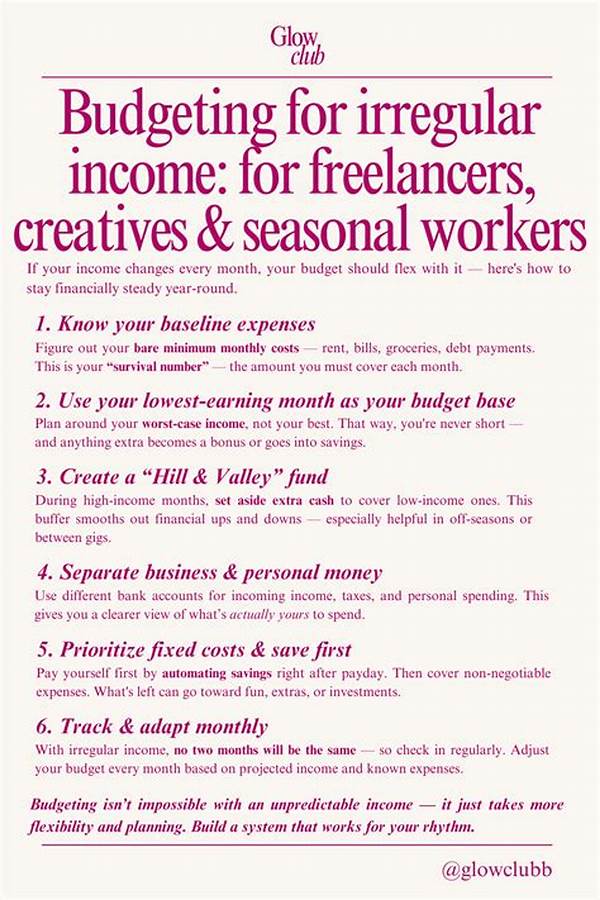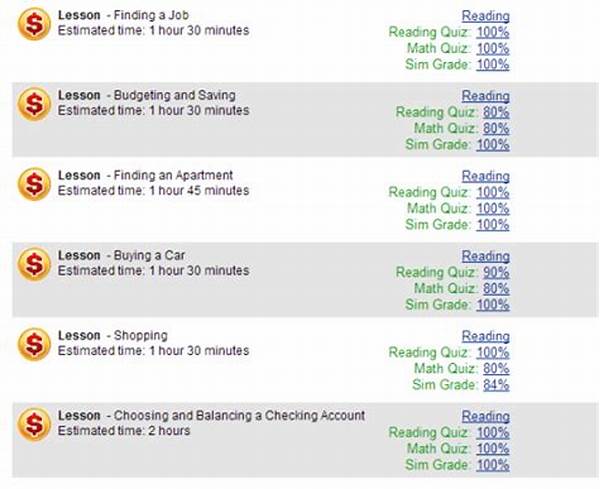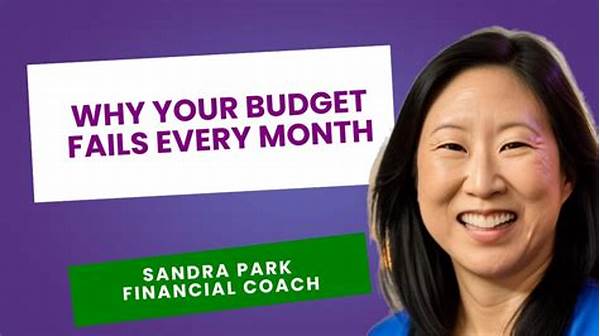How To Start Budgeting And Saving Money
How to Start Budgeting and Saving Money
Read More : The #1 Financial Mistake That Prevents Young Adults From Ever Buying A Home!
Money woes keeping you up at night? You’re not alone. Many people today struggle to juggle bills, unexpected expenses, and dreams of future vacations or retirement. A budget might sound like a straitjacket for your finances, but it’s more akin to a roadmap guiding you toward your financial goals. Learning how to start budgeting and saving money can be the secret sauce to turn chaos into prosperity with a sprinkle of discipline—and maybe a side of humor for those ‘oops’ moments.
Imagine this: you wake up each day knowing exactly where your money’s going. That coffee you’ve been cutting back on? With budgeting, you might see you can afford it guilt-free because your savings have been squared away. You suddenly have a clear goal, like saving up for a down payment on a house or simply ensuring an emergency fund can tackle whatever life throws at you. This article will explore how to start budgeting and saving money with an easy-to-understand, efficient strategy.
The beauty of budgeting isn’t just in curbing your impulse buys but in liberating you by offering choices. It shifts your financial perspective from a reactive to a proactive standpoint. After all, with every financial decision backed by a solid plan, you’d find less stress and more peace. Consider budgeting the adulting version of using a GPS—it tells you when you’re taking a wrong turn and helps reroute you to your destination without judgment.
Even as you enjoy the hilarious hunt for bargains during sales or your DIY home project turns into a comedic chaos, there’s comfort in knowing your financial foundation is strong. And that’s what budgeting does—lay a foundation as solid as your grandma’s antique dining table. So, without further ado, let’s dive into the nuts and bolts of how to start budgeting and saving money.
Develop a Sustainable Budget
1. Define Your Financial Goals
Begin by outlining your short-term and long-term financial goals. Whether it’s an emergency fund, a vacation, or saving for retirement, having clear goals will motivate you to stick to your budget.
2. Track Your Expenses
Before making changes, understand where your money goes each month. Track all your expenses without judgment; it’s like looking at yourself in the mirror before starting a diet.
3. Create a Realistic Budget
Based on your financial goals and spending habits, allocate funds to different categories, like necessities, savings, and discretionary spending.
4. Adjust as Necessary
Life happens. Your budget should be flexible enough to handle unexpected expenses without throwing you off track. It’s like wearing yoga pants—comfortably flexible.
5. Celebrate Milestones
Don’t forget to reward yourself for sticking to your budget. This will reinforce good habits and give you a motivational boost.
—
Discussion: The Joy of Budgeting
Understanding Your Financial Health
Delving into the strategy of how to start budgeting and saving money opens a world of financial literacy. Most of us view money as either a friend or a foe. Understanding your financial health is akin to learning a new language where numbers speak more than words. It’s about weighing how much comes in and more importantly, where it splurges out unnoticed. Those microtransactions, over time, become the silent nemesis eating away at your savings. But fear not—by implementing how to start budgeting and saving money meticulously, you can turn this ship around.
Real-life stories often headline financial struggle leading to enlightenment. Consider Jane, a young professional who dodged making a budget like Monday mornings. After struggling with unexpected expenses, she decided to learn how to start budgeting and saving money. Soon, she realized half her income was lost on unimportant expenses! By realigning her budget, Jane waved adieu to financial stress.
Creating a Budget You Can Stick To
Creating a budget you can maintain with ease is pivotal to your financial success. Adhering to its framework transforms a daunting task into an easy habit. Begin with small changes that require minimal effort; for instance, opting for a homemade brew instead of expensive coffee shop habits. This approach will help reinforce commitment without demanding a drastic lifestyle shift. The well-planned act of how to start budgeting and saving money can soon become second nature and reflect positively on your account balance.
Our innate desire to splurge and the sirenic call of flash sales often sabotage budgeting efforts. But understanding the ‘why’ behind saving—like a future travel adventure—can instigate the right ‘action’ difference. Like Mark Twain once quipped, “The lack of money is the root of all evil,” and getting to the root with a simple question leading to action makes how to start budgeting and saving money more exciting and rewarding.
Analyzing Your Spending Habits
Becoming an astute observer of your spending takes practice, patience, and a bit of detective work. Knowing where each penny goes allows for a comprehensive view of personal spending habits. It’s about more than curbing spending; it’s about knowingly allocating resources where they count. How to start budgeting and saving money involves identifying these ‘money pits’, trimming unnecessary expenditures, and boosting one’s sense of control and satisfaction over finances.
Peer into interviews with financial advisors, and they will echo this sentiment: revisiting and reanalyzing your budget periodically ensures it remains aligned with your evolving financial goals and lifestyle. A sound strategy acts like an unsung hero uplifting your financial salvation over the years. In truth, this systematic process gives way to emotional liberation as much as fiscal freedom.
In practice, how to start budgeting and saving money doesn’t shackle spending but liberates it by prioritizing what genuinely matters. Start today and see the profound impact of a disciplined yet flexible budget, gaining financial freedom over time.
Revising and Adapting Your Budget
Adaptation is the key to sustaining any effort. Start by revisiting your budget plan every couple of months. Economic changes, lifestyle Adjustments, or even global shifts like a pandemic may require tweaking. Be ready to revise and adapt, ensuring the strategic insights you acquire work harmoniously in achieving how to start budgeting and saving money continuously with finesse.
Engage vividly with helpful budgeting apps and tools that simplify the process. Here, technology whirlwinds into your corner like a vigilant financial team player, offering data, insights, and motivation to keep the financial flame alive. Remember, with each conscious financial decision, budgeting becomes less of a chore and more of your success story in the making.
Conclusion
Starting on this journey of financial wellness is tantamount to securing not just a wealthier future but a richer present. The steps to take, once viewed as a hardship, shall reveal how to start budgeting and saving money positively transforms your financial narrative effortlessly. Sure, the road may be punctuated with challenges, but it promises substantial triumphs. Get ready to transition from financial unease to a future of calculated prosperity and peace of mind.
—
How to Start Budgeting and Saving Money: 10 Essential Topics
Exploring the Significance of Budgeting
Budgeting is not merely an exercise in restraint but a powerful tool for future planning. The struggle for financial solubility among many is evident in increasingly common financial stress surveys, highlighting a societal need to grasp personal finance management. With the overpowering desire to live sustainably, tackling the question of how to start budgeting and saving money takes on new importance. Through understanding, we unlock opportunities that static methods cannot offer.
For instance, on analyzing households’ budgeting behaviors, it’s evident that engaging in saving can increase happiness—often contrary to beliefs interpreting frugality as a joyless enterprise. Revealing a relatable, engaging narrative through statistics and testimonials from individuals who’ve succeeded invites others to replicate similar success stories. By focusing on educational tactics intertwined with humorous, relatable delivery, individuals no longer view budgets as restrictive but empowering. It’s a world where a proactive approach curates financial freedom and accomplishment without sacrificing life’s little joys.



